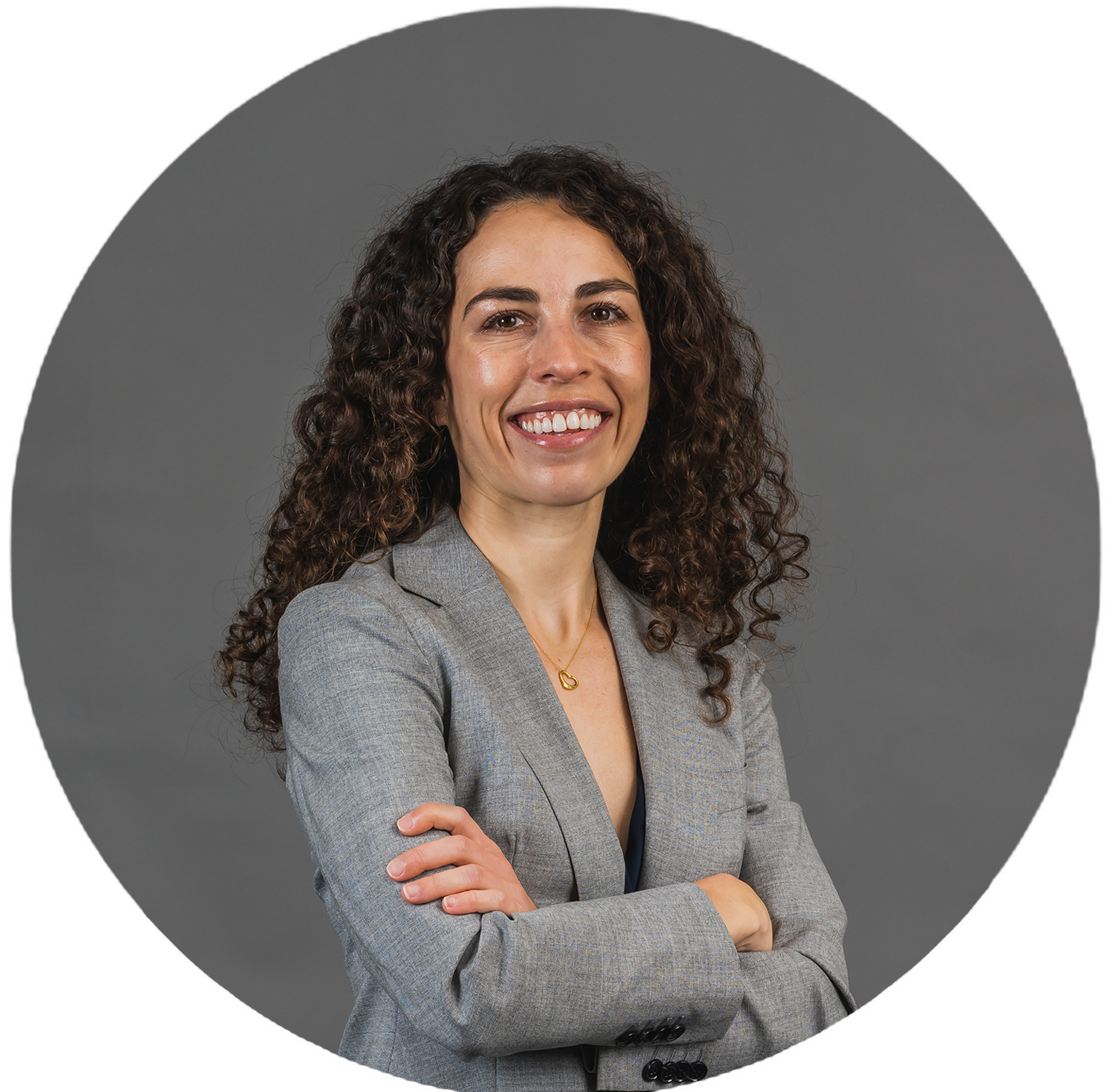our team
For questions or more information about the Policing Project’s AI Policy Hub, please contact us at tech@policingproject.org.

Max is the Director of Technology Law & Policy with the Policing Project. His work focuses on emerging policing technologies and their implications for civil rights, civil liberties, and racial justice. Among other work, Max staffed Axon's independent AI Ethics Board from 2020 to 2022, worked on audits of Ring's Neighbors platform and Baltimore's aerial surveillance program, and drafted policy guides and model legislation on a range of topics including license plate readers, fusion centers, and private-public surveillance. His current work includes an evaluation of the use of robots in law enforcement and the development of a governance framework for the use of AI-enabled technologies in policing, prosecution, and prevention.
Prior to joining the Policing Project, Max clerked for Judge Diana Gribbon Motz of the Fourth Circuit Court of Appeals and Judge Lorna G. Schofield of the Southern District of New York. He also served as a civil rights fellow at Lambda Legal Defense and Education Fund. Max graduated magna cum laude from New York University School of Law where he was a member of the Law Review. He also holds a Bachelor of Music degree from the Conservatory of Music at Purchase College.

Katie Kinsey is Chief of Staff and Tech Policy Counsel at the Policing Project at NYU School of Law. Her work focuses on emerging policing technologies and their impact on civil rights, civil liberties, and racial justice. Katie frequently testifies before state and local legislatures to advocate for democratic accountability in the acquisition and use of AI-powered policing technologies. Her work on policing technology governance has appeared in the Berkeley Technology Law Journal and news media including Slate and Bloomberg Law.
Prior to joining the Policing Project, Katie was a litigation associate at Orrick, Herrington & Sutcliffe and clerked for the Honorable Mark P. Lane of the United States District Court for the Western District of Texas.
Katie began her career as a special education teacher in the New York City public school system. She received her J.D. cum laude from the University of Texas at Austin School of Law; an M.S. in Special Education from CUNY Brooklyn College; and a B.A. from Brown University.

Jesse Woo is the Technologist and AI Policy Counsel at the Policing Project's Tech Team. He is an attorney and machine learning engineer with a decade of experience working at the intersection of technology, law, and policy. He is also an expert on the governance and use of data in the policing and national security sectors, and at working across disciplines to understand complex socio-technical systems like AI. Jesse has served as a Tech Policy Fellow in the Office of Senator Ron Wyden, a Fulbright scholar on cross-border data and AI issues at Kyoto University in Japan, and a Research Associate on Privacy and Cybersecurity at the Georgia Institute of Technology. He has written about data privacy, robotics and drones in the context of smart cities and published in the Berkeley Technology Law Journal and Connecticut Law Review. He has also been quoted on tech law issues by popular publications such as the Verge and Motherboard.
Jesse holds a masters in computer science from Columbia University and a J.D. from the University of Washington School of Law, where he was the executive articles editor on the Washington Law Review. He received his B.A. in history from U.C. Davis.

Quincy is the Tech/Advocacy Counsel at the Policing Project, where she focuses on the legal and civil rights implications of emerging policing technologies, particularly in relation to civil liberties and racial justice. Her work includes researching automated traffic enforcement and novel DNA practices, assisting drafting policy guides on Automated License Plate Readers (ALPRs), and conducting legislative tracking on several issues such as pretextual traffic stops and use of force.
Quincy is a graduate of Cornell University and the University of California, Berkeley, School of Law, where she has volunteered with the Re-Entry Advocacy Project and the National Lawyers Guild, providing support to previously and currently incarcerated individuals. During law school, Quincy interned with the Youth Law Center, the Haywood Burns Institute, the Legal Aid Society, and No Peace Without Justice in Brussels, Belgium.
Prior to law school, Quincy worked as a canvasser advocating on behalf of nonprofit organizations during the 2018 presidential midterm election.

Jenna is engaged in ongoing projects on how to implement AI safely and ethically in law enforcement practices. Her projects include tracking legislative progress on the latest AI bills and formulating substantive guardrails for regulatory frameworks on how to best use technology that meets the interests of police officers, community members, and other stakeholders. Jenna first interned at the Policing Project in 2022 to assist the policing technology and litigation teams. This exposure to the complicated yet exciting world of technology ethics, law, and policy inspired Jenna to pursue a career in responsible AI and tech regulation. She has developed studies to measure the moral awareness of technologists and attended Congressional meetings in DC to advocate for academic experts to help inform the government’s response to emerging technologies. Jenna aims to promote AI governance, establish privacy rights, and mitigate algorithmic bias in law enforcement and similar industries.
Jenna graduated summa cum laude from the University of Chicago with a BA in Philosophy and a BA in Law, Letters, and Society. She received her Master’s in Bioethics and Science Policy with a Concentration in Technology Ethics and Policy from Duke University, where she also earned a merit-based full-tuition scholarship.
Advisors

Vanita Gupta is a Distinguished Scholar in Residence at NYU School of Law. From 2021 to 2024, Gupta served as the 19th Associate Attorney General of the United States. In that role, Gupta oversaw high profile litigation matters including settlements that provided historic compensation for victims of mass gun violence (Charleston AME, Parkland, and Sutherland Springs) and that changed federal law enforcement policies during mass demonstrations (Lafayette Square cases). Other highlights of her tenure include the negotiation and implementation of the President’s policing and criminal justice reform executive order, including creation of a DOJ accreditation regime for police departments and a first-ever national law enforcement accountability database; and the after-action assessment of the law enforcement response to the mass shooting in Uvalde,Texas. Immediately prior to her time as Associate Attorney General, Gupta served as the President and Chief Executive Officer of the Leadership Conference on Civil and Human Rights, the nation’s oldest and largest coalition of non-partisan civil rights organizations in the United States. From October 15, 2014, to January 20, 2017, Gupta served as Acting Assistant Attorney General and Head of the Justice Department’s Civil Rights Division. Gupta began her legal career as an attorney at the NAACP Legal Defense & Educational Fund, where she successfully led the effort to overturn the wrongful drug convictions of 38 individuals in Tulia, Texas, who were ultimately pardoned by Governor Rick Perry, and obtain a $6 million settlement on their behalf.
Gupta has served on the boards of non-profit organizations and educational institutions. She appears regularly in the media, and has won numerous awards for her work. Gupta graduated magna cum laude from Yale University and received her law degree from New York University School of Law.

From 2019-22, Farhang served as the Policing Project’s inaugural Executive Director. During that three-year tenure, the Policing Project doubled in staff, tripled in budget, and opened several new project areas. As Legal Director, he then oversaw the Project’s litigation work as well as its efforts regarding policing technologies.
Farhang has long worked on criminal justice reform. In addition to his work at the Policing Project, Farhang is an Assistant Professor of Law at Vanderbilt Law School. Before working at the Policing Project, he worked at the civil rights law firm Neufeld, Scheck and Brustin, LLP, where he focused on representing individuals who have been victims of official misconduct.
Farhang is a graduate of Harvard University and Columbia Law School, where he served as the editor-in-chief of the Columbia Law Review. After law school, Farhang clerked for Judge Diana Gribbon Motz of the Fourth Circuit Court of Appeals and Judge Kimba Wood of the Southern District of New York.


